

OCCUPATIONAL THERAPY
WHAT IS OCCUPATIONAL THERAPY?
Occupational Therapy (OT) is a treatment for problems with movement and coordination. It helps people improve the motor skills involved in everyday tasks, like writing and getting dressed.
These skills include fine and gross motor skills and motor planning.
WHO IS AN OCCUPATIONAL THERAPIST?
An occupational therapist is a health professional who is responsible for helping patients regain their ability to perform daily living and work activities. Their patients have generally lost these abilities because of mental, physical, developmental, or emotional conditions.Therapists also work on coordination, balance, and self-regulation skills.
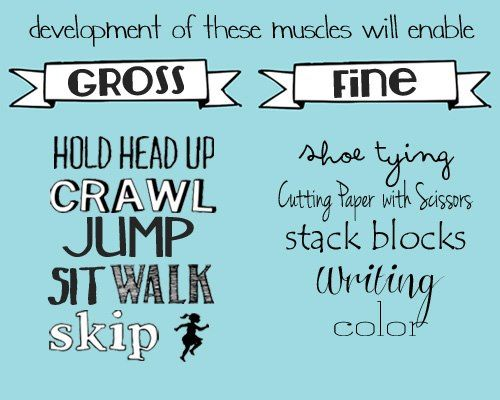
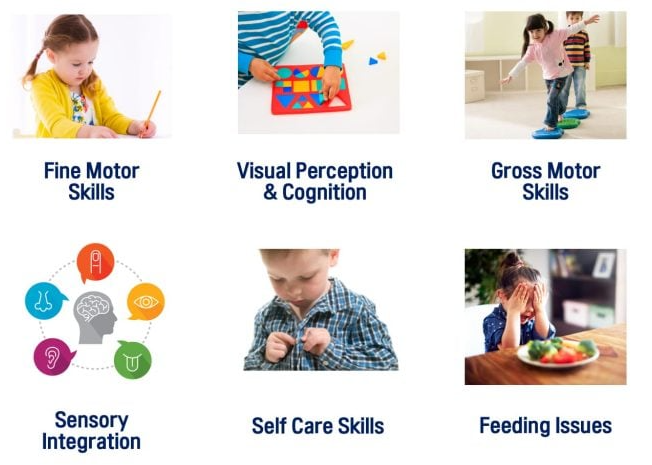
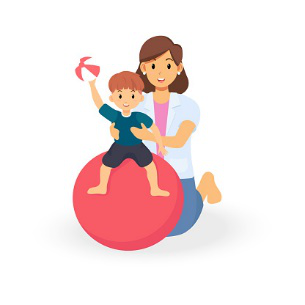
WHEN DO I NEED OCCUPATIONAL THERAPY?
Have you or a family member ever been diagnosed witha new health condition and found yourself asking, “now what?” Maybe you have a child with autism who is having trouble succeeding in school, or an aging parent who wants to remain at home but you’re worried about safety issues, or you are experiencing depression and having trouble doing everyday activities.
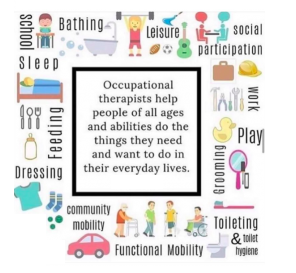
Occupational Therapy can help you answer that “now what?” question. An Occupational Therapy practitioner will keep the focus on the things you need and want to do—your goals, your activities, and your independence.
With Occupational Therapy services you can:
-
Achieve goals, such as helping your teenager with a developmental disability gains the skill to transition from high school to independent living as an adult.
-
Stay as healthy and productive as possible, while managing a chronic medical condition.
-
Maintain or rebuild your independence, such as using assistive devices so you can care for yourself after a stroke.
-
Participate in the everyday activities important to you, such as driving, visiting friends, going to church, and other activities that keep you involved with your community.
In short, an Occupational Therapy practitioner can help you live life to its fullest no matter your health condition, disability, or risk factors.
WHY WOULD I NEED OCCUPATIONAL THERAPY?
Imagine if an accident, injury, disease, or condition made it difficult for you to participate in your daily activities. A wrist injury means that getting dressed in the morning is painful. Arthritis makes driving challenging. Autism may hinder a child from interacting effectively with classmates. A traumatic brain injury keeps a wounded warrior out of active duty because of difficulties with memory and organizational skills. Or a small change in your activities or the environment could prevent a future condition (such as using ergonomics at work to avoid injury).
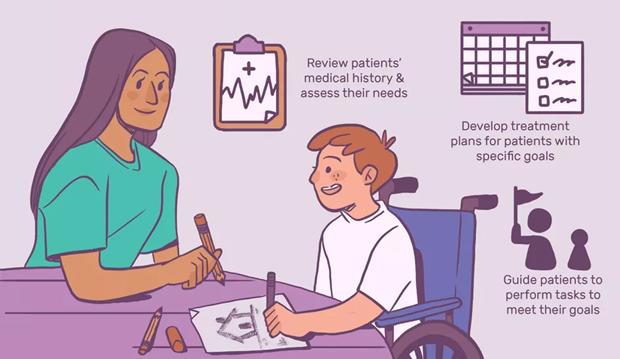
Occupational Therapy allows people across the lifespan to do the activities they want and need to do. An Occupational Therapist will evaluate your situation and, with input from you (and perhaps your family, care provider, or friend), develop individualized goals that allow you to resume or pursue your valued occupations. After you develop goals with your occupational therapist, you will work together on a specific intervention plan to help improve or maintain your ability to perform daily activities and reach your goals getting back to your life. Occupational therapy practitioners can widen their focus to groups or communities too, developing and implementing programs that promote healthy behaviors, or address particular issues such as older driving, community transitions for returning soldiers, homelessness, troubled youth, mental health, and addictions.
OUR DUTIES INCLUDE:
-
Review patients’ medical history and asses their condition and needs
-
Evaluate patients’ ability to do certain tasks
-
Confer with physicians, patients and their families, nurses, therapists, social workers, and other members of a patient’s care team
-
Develop a treatment plan for patients with specific goals and tasks that will help them meet those goals
-
Guide patients to perform tasks to meet their goals
-
Demonstrate exercises that can help patients better perform everyday tasks and relieve pain
-
Evaluate a patient’s home or workplace and identify potential improvements based on their needs
-
Educate a patient’s family about how to help care for and accommodate them
-
Recommend and teach patients how to use adaptive equipment that will help them with daily living, such as wheelchairs and eating aids
-
Assess patients’ progress against goals and prepare reports for healthcare providers and insurance agencies
TREATMENT:
Treatment is based on the individual’s need and ability, but all strive to develop, increase, or maintain independence in performing tasks of daily living.
An Occupational therapist will provide the patients with exercises which help in improving the gross and fine motor skills that required for basic daily living.
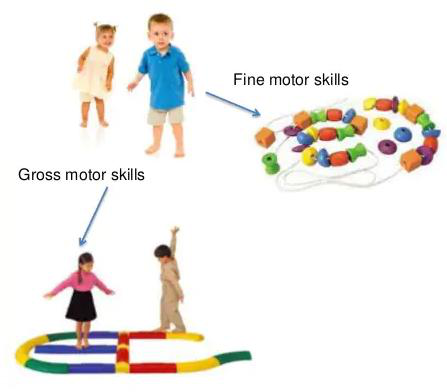
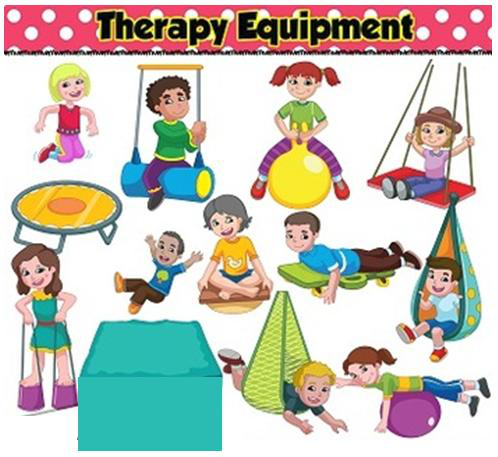
REGISTERED & RECOGNISED BY THE COMMISSIONER FOR WELFARE OF THE DIFFERENTLY ABLED BY THE GOVT. OF TAMIL NADU REGISTRATION NO. 685 / 2024
NIOS ACCREDITED CENTRE NO. M19103
DACAL is a school which caters to children with developmental delays, learning difficulties and special needs.
CONTACT US
DACAL - Darul Ansar Centre for Applied Learning
Anjuman-e-Himayath-e-Islam
#16, B.N. Reddy Road, Chennai 600 017.
Phone: 044 4901 4553, 98842 70480
Mon-Fri: 8:30 am – 3:30 pm